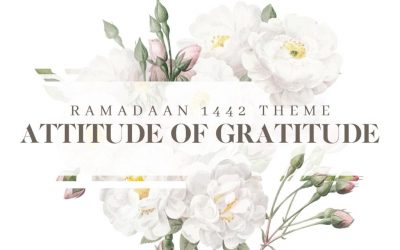Fitr means to break fast or to refrain from fasting. Hence the Eid after the fasts of Ramadhân is called Eid ul Fitr, as it is the day of rejoicing after the completion of fasting.
On this occasion of happiness, as a sign of gratitude one has to give a specific amount in alms, which is called Sad’qatul Fitr. To purify and obtain complete blessings for the fasts of Ramadhân Mubârak one has to give Sadaqatul Fitr. It is reported from Hazrat Ibn Abbâs Radiallâhu anhu that Rasulullâh Sallallâhu ‘alayhi wasallam made charity of Fitr compul¬sory as a purification of fasts from useless talks and vile discourses and also as food to the poor (Abû Dawûd). Thus it is wâjib to give Sadaqatul Fitr to purify one’s fast. The true object in giving Sadqatul-fitr on this happy, occasion is also to assist the poor and needy, so that, they may rejoice with the more fortunate.
In a narration of Tirmidhi, it is reported that Rasulullâh Sallallâhu ‘alayhi wasallam sent a proclaimer through the lanes of Makkah to proclaim. “Beware charity of Fitr is wâjib on every Muslim, male or female, free or slave, young or old two muuds [measures] of wheat, or its equivalent, or one Sa’a from food crops”. It is apparent from this Hadîth that Sadaqatul Fitr is wâjib on every Muslim. A person should pay Sad’qatul¬Fitr on behalf of his family if they own no wealth. It is wâjib to pay Sadaqatul Fitr whether one fasts or not.
The time of Sadqa becomes wâjib on the day of Eid when the dawn breaks. If a person dies before Subh Sadiq [dawn], no sadaqatul fitr will be paid from his wealth, but if a child is born before dawn, it shall be paid on behalf of that child. It is permissible to pay Sadaqatul Fitr during the month of Ramadhân, though it is advisable to pay on the day of Eid before the Eid Salâh. It will remain due to him whatever time has passed.
To distribute a specific amount of money, barley, dates etc, on the day of Eid ul Fitr is wâjib. This giving of alms to the poor and needy on this auspicious day is called Sadaqatul Fitr. Rasulullâh Sallallâhu ‘alayhi wasallam instructed the giving of Sadaqatul Fitr, in the same year fasting [Roza] of Ramadhân was made compulsory. This was in the second year after Hijrah. The reasons for giving Sadaqatul Fitr are:
(1) To give Sadaqatul Fitr in lieu of the acceptance of one’s fasting.
(2) To thank Allâh Ta’âla, for bestowing on us the strength to fast during the month of Ramadhân.
(3) To purify one’s fast and obtain the complete blessings of fasting.
(4) To celebrate the completion of fasting.
(5) To demonstrate greatness of the day of Eid.
(6) To assists the poor in joining the atmosphere of Eid.
Sadaqatul fitr is compulsory charity which becomes payable on the occasion of Eid-ul-Fitr.
RULES OF SADAQATUL FITR
Sadaqatul Fitr (or fitrah) is wâjib [compulsory] upon all Muslims male, female and children who on the Day of Eid-ul-Fitr are owners of the Nisâb of Zakâh.
Fitrah becomes wâjib when the Day of Fitr dawns with the commence¬ment of Fajr time. Therefore, if someone died before entry of Fajr on the Day of Eid, fitrah will not be paid out of his (the deceased’s) estate, since this fitrah is not wâjib on him. And, if a child is born before the rising of Fajr, fitrah will be paid on his behalf. If the child is born after the entry of Fajr (on the Day of Eid) fitrah is not wâjib on his behalf.
The father has to pay the fitrah on behalf of his under age children, i.e. those who have not attained the age of puberty.
It is not obligatory upon the husband to pay fitrah on behalf of his wife. If she is the owner of Nisâb, she shall have to pay her own fitrah.
If a minor is the owner of wealth to the amount of Nisâb, then payment of fitrah on behalf of the minor could be made from out of his (minor’s) wealth.
The fitrah should preferably be paid before the Eid Salâh.
It is not permissible to delay the payment of fitrah later than the Day of Eid. However, if it was not paid on the Day of Eid or before, the obligation remains and the fitrah will have to be paid.
It is permissible to pay the fitrah in advance at any time during the month of Ramadhân. The fitrah could be paid even before Ramadhân.
Sadaqatul Fitr is wâjib upon all those who fasted as well as those who did not fast for some reason or other.
The fitrah can only be paid to “the poor” those who are entitled to accept Zakâh.
Fitrah cannot be utilised for any charitable purpose other than the poor. Therefore, if fitrah monies are accumulated and then spent on some other charitable cause, the fitrah obligation of the fitrah payers will not be discharged.
Rasulullâh Sallallâhu ‘alayhi wasallam said: “The fast remains suspended between Heaven and Earth until the fitrah is paid.”
This Hadîth of Rasulullâh Sallallâhu ‘alayhi wasallam illustrates the importance of the fitrah and its direct bearing on the acceptance of our Saum [Fasting]. The Fast is only presented for acceptance by Allâh Ta’âla when the obligation of fitrah is correctly discharged. The Muslim public should therefore be very scrupulous when effecting payment of the fitrah. If the fitrah is misused or wrongly distributed by the representatives of the public, the public will still be responsible for its (Fitrah’s) fulfilment.


0 Comments